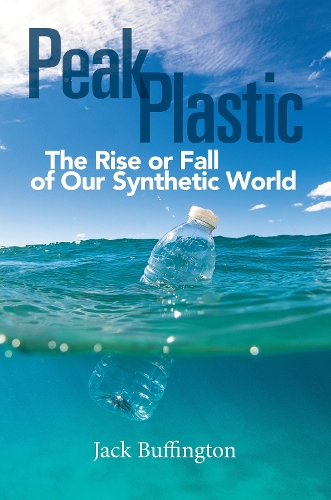
Peak Plastic: The Rise or Fall of Our Synthetic World
(Hardback)
Publishing Details
Peak Plastic: The Rise or Fall of Our Synthetic World
By (Author) Jack Buffington
Bloomsbury Publishing PLC
Praeger Publishers Inc
2nd November 2018
United States
Classifications
Tertiary Education
Non Fiction
Waste treatment and disposal
Waste management
Technical design
Design, Industrial and commercial arts, illustration
363.738
Winner of 2019 Choice Outstanding Academic Title 2019
Physical Properties
Hardback
160
Width 164mm, Height 238mm, Spine 16mm
400g
Description
Shows why plastics, in aggregate, have become a toxin to humans, wildlife, and the planet, and proposes novel solutions that involve neither traditional recycling nor giving up plastic. "Plastics!" In the 50 years since Dustin Hoffman's character in The Graduate was instructed that this was the career field of the future, we have not been able to escape this ubiquitous but poorly understood material. Author Jack Buffington argues that the plastics crisis is careening toward a tipping point from which there will be no return. There is still time, however, to do something about this crisis if we have the imagination and the will to move away from the failed policies of the past. This book is the first to propose a new model for linking our synthetic world to the natural one, rather than seeking to treat them as separate entities. The key is supply chain innovation. Buffington presents five market-based solutions based on this principle that will allow consumers to continue to use plastic, which has in many ways enabled our way of life. Alongside these proposed solutions, he also addresses the proliferation of plastic as we know itgrowth that, if left unchecked, will lead to a "planetary crisis," according to the United Nationsand considers how the material itself might be adapted for a sustainable future.
Reviews
Given the crucial importance of this topic and the author's insightful approach, this well-written volume has much to offer students and specialists at all levelsSumming Up: Highly recommended. All academic levels. * Choice *
Author Bio
Jack Buffington is responsible for warehousing and fulfillment for MillerCoors, and he teaches at University College and the Daniel's College of Business at the University of Denver. He is the author of The Recycling Myth.
